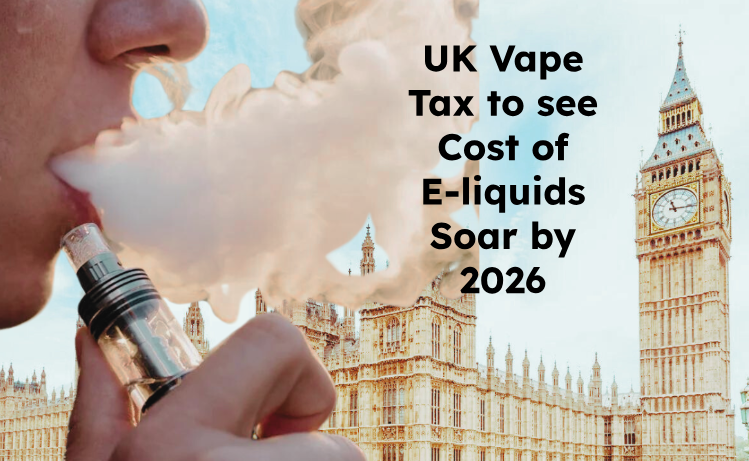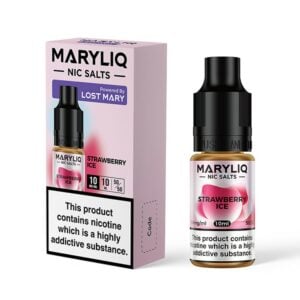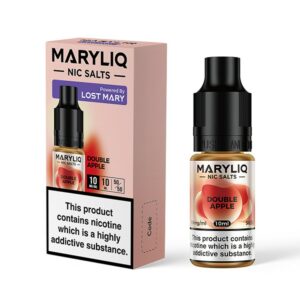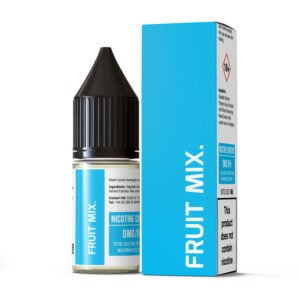This comes after Chancellor Jeremy Hunt proposed a vape tax in this year’s Spring Budget.
The vape tax, due to hit the UK in October 2026, will consist of three rates for every 10ml E-liquid sold on top of the current 20% VAT in an attempt to tackle underage vaping and prevent non-smokers from taking up vaping.
- Additional £1 for 10ml nicotine-free E-liquid
- Additional £2 for 10ml E-liquids containing 0.1 – 10.9mg of nicotine
- Additional £3 for 10ml E-liquids containing 11,g+ of nicotine
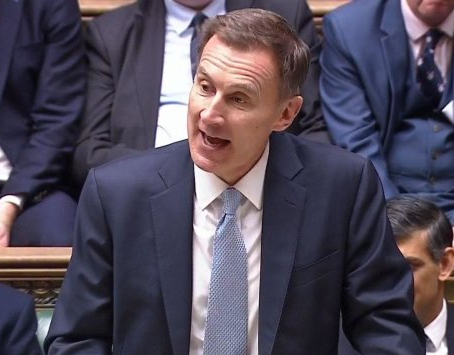
To ensure vaping remains cheaper than traditional cigarette smoking, the government plans to increase the tobacco duty.
The announcement from Jeremy Hunt reads as:
“Because vapes can also play a positive role in helping people quit smoking, we’ll introduce a one-off increase in tobacco duty at the same time to maintain the financial incentive to choose vaping over smoking.”
Chancellor Jeremy Hunt
No Vape Tax
Aiming to fight the proposed UK government vape tax on E-liquid, New Nicotine Alliance – a charity dedicated to improving the public’s understanding of tobacco harm reduction – and Vapers.org.uk created the website ‘No Vape Tax’.
A statement from the New Nicotine Alliance (NNA) said: “We wish to see a mature public and organisational understanding of the potential of safer nicotine products for reducing cigarette smoking, introducing the safety and efficacy, and hence contribute to the reduction in cigarette smoking. This requires engaging with and informing a wide range of individuals and audiences – from health through to regulatory bodies.”
Vapers.org.uk says it is a “website run by Vapers for Vapers, collecting news and comments from around the world with regard to vaping. We are all volunteers and not funded in any way by any aspect of the ‘Big Industry’ be it electronic cigarette, tobacco or pharmaceutical.”
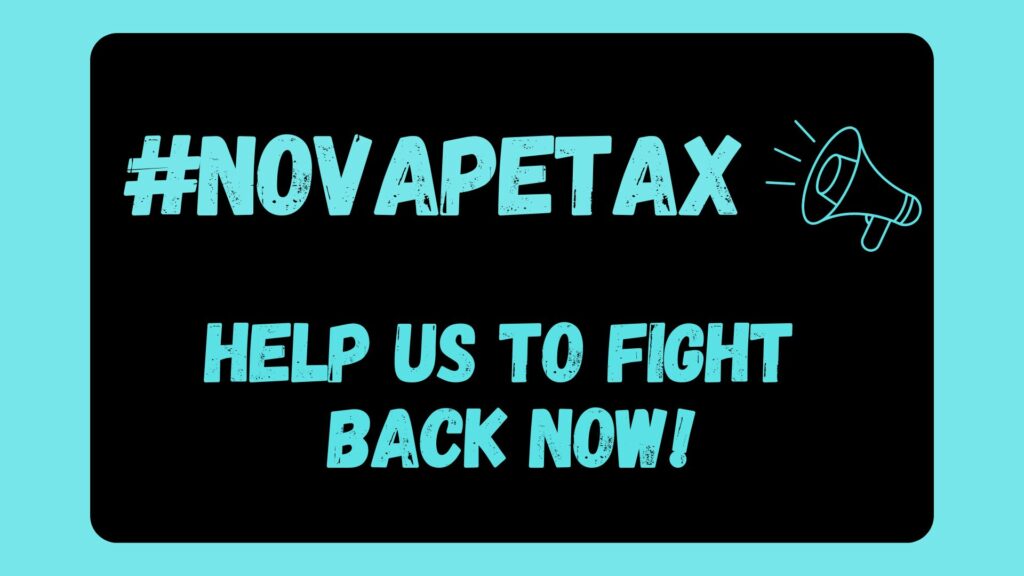
Many stories and concerns regarding the vape tax from ex-smokers who made the switch have been shared on their website.
One ex-smoker remarked that:
“The proposed tax on vaping e-liquids is just plain madness. People who have switched on their own merit and at their own expense, decreasing the burden on the NHS and increasing better health outcomes for those that switch. To put a tax on e-liquids that could see some nearly cost the same as a packet of cigarettes will give out the wrong confusing messages, punishing those that have switched and discouraging those that could switch in the future, and in the very worst case scenario send those that have already switched back to deadly tobacco smoking.”
Dale Roberts
Chair of the New Nicotine Alliance, Louise Ross said:
“A tax on vaping liquids makes no sense. It will undermine the Swap to Stop programme, and will disadvantage people who have stopped smoking, including those on very low incomes and people with poor mental health.”
Louise Ross, NNA Chairman
Dave Cross expressed that:
“As an MTL vaper who uses 18mg e-liquid, this vape tax will have the nonsensical impact of asking me to vape more by self titrating cheaper, lower strength juices..
Only a politician in a dying government would have thought that prioritising DTL vaping over MTL vaping and increasing the volume of vaping makes any sense. This tax is attempting to build on anti-vaping sentiment, not research evidence or expert opinion. It has been slated by academics, public health experts and harm reduction advocates. It makes no sense and needs to be scrapped now.”
Dave Cross
Another person commented: “Why should people be penalised for not smoking? Why should higher nicotine users be penalised more than lower strength users? Why should people who use zero nicotine be penalised with tax at all? Not only are they not smoking, they are not using nicotine either! The bottom line is, the more restrictions (or penalties) that are put on vaping, the more people will smoke.”

Director of Counterfactual Consulting
Clive Bates, Director of Counterfactual Consulting and former director of Action on Smoking and Health (ASH) said:
“A tax on vapes is a tax on health, a burden on the NHS, and the opposite of whatever ‘levelling up’ is supposed to mean.
Tobacco harm reduction is almost the perfect policy: people quit smoking on their own initiative and at their own expense. They reduce their burden on the NHS and have more money to spend on essentials like food and heating.
Everyone goes on about prevention being better than cure, but when we finally do it for millions of people, the government slaps a huge tax on it.”
Clive Bates
Stated on ‘The Counterfactual’ of which he calls his advocacy site, Bates said: “Much of my outward-facing work is on the public health strategy of tobacco harm reduction, which is the use of low-risk alternatives to cigarettes to displace smoking. I believe this approach could ultimately avoid hundreds of millions of untimely deaths and cases of severe disease.”

